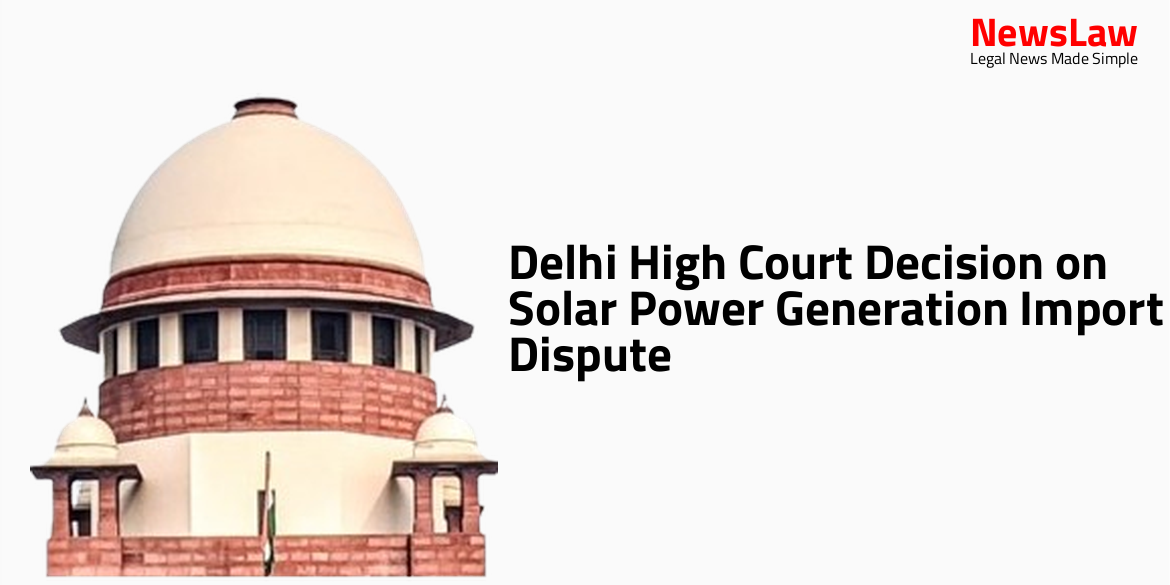In a significant verdict, the Supreme Court of India resolved the dispute between IFCI and its ex-employees regarding the VRS-2008 pension scheme. The ruling clarifies the terms and limitations of the voluntary retirement package, ensuring finality in the settlement of claims. This judgement sets a precedent for similar cases and upholds the integrity of the VRS-2008 Scheme. Stay informed about the details of the case and its legal implications.
Facts
- Industrial Finance Corporation of India Ltd. (IFCI) was established in 1948 to address the industrial and infrastructural needs of India.
- IFCI transformed from a statutory corporation to a company under the Indian Companies Act in 1993.
- To manage excess employees, voluntary retirement schemes were introduced over time.
- The current dispute is related to the Voluntary Retirement Scheme (VRS) of 2008.
Also Read: Supreme Court Judgment on Single Till Mechanism for HRAB Calculation: A Comprehensive Analysis
Arguments
- Plea of private respondents that certain aspects of the Scheme were nebulous and benefits must be available to them is without basis.
- Referring to the constitution Bench judgment in D.S. Nakara v. Union of India, learned counsel explained the method of revised pay scales for existing employees.
- Revised pay scales are introduced from a certain date, and all existing employees are brought onto the revised scales through fitments and increments for past service.
- Benefits of revised scale are extended to all employees in service prior to the date fixed for introducing revised scales, not just those entering service after that date.
Analysis
- The Scheme for Voluntary Retirement is a standalone package with specified terms.
- The VRS-2008 provided a full and final settlement of all claims, disallowing any further benefits from earlier schemes.
- The eligibility and benefits under the VRS-2008 were clearly stated in the Scheme clauses.
- Pension, being a form of retirement benefit, is for past services and is not subject to retroactive changes.
- Employees opting for VRS-2008 were aware of the implications and terms of the scheme, limiting their future claims.
- The VRS-2008 did not allow for an open-ended interpretation or additional financial benefits beyond the Scheme terms.
- The IFCI Pension Regulations were inclusively applied within the framework of the VRS-2008 for employees opting for voluntary retirement.
- The principle of no additional benefits post-VRS cessation was upheld in legal disputes, maintaining the integrity of the VRS-2008.
- Delay in raising subsequent claims or seeking to derive extra benefits beyond the Scheme terms was not entertained.
- The VRS-2008 was meant to be a one-time economic package for voluntary retirees, with no room for further claims or benefits.
- Clause 7 of the Scheme outlines the benefits available to employees who opt for voluntary retirement, including the balance in their Provident Fund account and pension as per IFCI Pension Regulations.
- Employees opting for VRS can receive voluntary retirement amount equivalent to two months’ salary for each completed year of service or Rs.15 lakhs, whichever is less.
- Clause 8.7 of the Scheme states that the benefits provided under the scheme will be a full and final settlement of all claims to the employee or their nominee.
- The definition of ‘date of retirement’ includes the date when an employee voluntarily retires, as per the IFCI Staff Regulations.
- Regulation 33 of the IFCI Staff Regulations allows employees under the IFCI Pension Regulations to voluntarily retire after completing 20 years of qualifying service.
- Administrative Circular No.16 of 1992 introduced Regulation 33(2) w.e.f. 20.6.1992, specifying that service rendered prior to joining IFCI will not be considered for calculating voluntary retirement benefits.
- Employees aged 50 or above have the option to retire by giving three months’ notice in writing.
- The benefits provided under the Scheme are a final settlement of all claims to the employee or their nominee.
- Ex gratia amounts are paid to employees who are leaving services of the company voluntarily.
- These payments are made in lieu of the employees foregoing any further claims or rights.
- The purpose of introducing a scheme for voluntary retirement is to reduce surplus staff and to bring in financial efficiency.
- Previous application of RBI pay-scales to existing employees does not entitle them to pension based on those revised pay-scales
- Pension is calculated based on the last ten months’ salary prior to termination date
- Private respondents’ claim for pension based on retrospectively applied RBI pay-scales is unfounded as their chapter with IFCI was closed
Also Read: Selection and Appointment of Judicial Officers in Himachal Pradesh
Decision
- Costs were not imposed due to the fact that the private respondents are mostly pensioners now.
- The appeal was allowed.
- The impugned order of the Division Bench of the High Court was set aside.
Case Title: IFCI LTD. Vs. SANJAY BEHARI
Case Number: C.A. No.-006995-006995 / 2019



